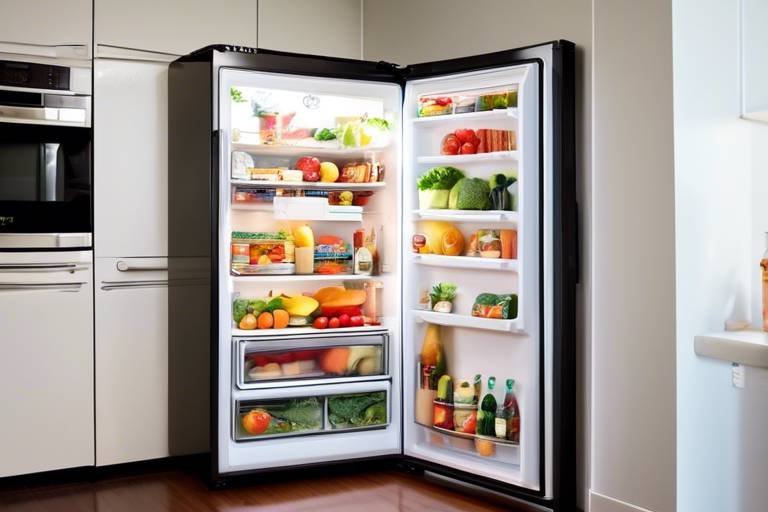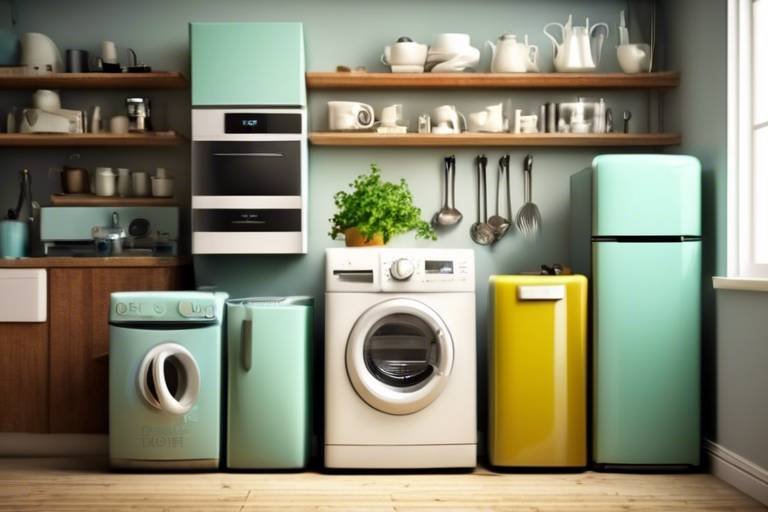The Benefits of Using an Energy-efficient Refrigerator
In today's world, where every penny counts and the environment is a growing concern, energy-efficient refrigerators have emerged as a game-changer in household appliances. These modern marvels not only keep your food fresh but also play a pivotal role in reducing energy consumption and greenhouse gas emissions. Imagine walking into your kitchen, opening the fridge, and knowing that you are making a positive impact on your wallet and the planet. Isn't that a win-win situation? In this article, we will explore the numerous advantages of these innovative appliances, including significant cost savings, their environmental benefits, and advanced features that enhance user experience while promoting sustainability in households.
One of the most compelling reasons to switch to an energy-efficient refrigerator is the substantial cost savings it offers. These appliances are designed to consume less electricity compared to traditional models, which translates to lower utility bills. Over time, the savings can be quite impressive. For instance, an energy-efficient refrigerator can save you anywhere from $50 to $300 annually, depending on usage and local electricity rates. Just think about what you could do with that extra cash! You could treat yourself to a nice dinner, save for a vacation, or invest in other eco-friendly appliances. The initial investment in an energy-efficient model may be slightly higher, but the long-term savings make it a smart financial decision.
Beyond the financial benefits, energy-efficient refrigerators are also champions of the environment. By using less energy, these appliances contribute to a lower carbon footprint, helping to combat climate change. When you choose an energy-efficient model, you're not just making a choice for your home; you're making a choice for the planet. Each refrigerator that operates efficiently reduces greenhouse gas emissions, leading to cleaner air and a healthier ecosystem. Isn't it comforting to know that your everyday choices can lead to significant environmental impact? Every small step counts, and switching to an energy-efficient refrigerator is one of those impactful steps.
So, how do these energy-efficient refrigerators manage to consume less power? The secret lies in their advanced technology. Many models are equipped with smart sensors and variable-speed compressors that adjust cooling levels based on the contents of the fridge and the ambient temperature. This means they only use the energy necessary to maintain optimal cooling, rather than running at full power all the time. The result? A noticeable reduction in energy consumption, which not only helps your wallet but also conserves valuable natural resources.
When shopping for an energy-efficient refrigerator, look for the Energy Star certification. This label signifies that the appliance meets strict energy efficiency guidelines set by the Environmental Protection Agency (EPA). Energy Star-certified refrigerators use about 15% less energy than non-certified models, making them a smart choice for eco-conscious consumers. By choosing a certified model, you can rest assured that you are making a responsible choice that benefits both your household and the environment.
Investing in an energy-efficient refrigerator is not just a short-term decision; it’s a long-term commitment to saving money and protecting the environment. Over the lifespan of the appliance, which can be 10-15 years or more, the cumulative savings from reduced energy bills can be significant. Plus, many energy-efficient models are built to last, often featuring durable materials and advanced technology that extends their lifespan. This means fewer replacements and less waste in landfills. In essence, you’re not just buying a refrigerator; you’re making a sustainable investment.
Modern energy-efficient refrigerators are packed with innovative features that enhance convenience and usability. From smart connectivity to customizable shelving, these appliances are designed with the user in mind. For example, some models come with Wi-Fi connectivity, allowing you to monitor energy usage and receive alerts about temperature changes directly on your smartphone. Others feature flexible storage solutions, such as adjustable shelves and specialized compartments for different food types. These advancements not only improve the user experience but also contribute to better food preservation and less waste.
Speaking of food preservation, energy-efficient refrigerators often include advanced cooling technologies that ensure your groceries stay fresh for longer. With features like multi-zone cooling and air filtration systems, these appliances create an ideal environment for food storage, minimizing spoilage and waste. Imagine opening your fridge and seeing vibrant, fresh produce that lasts longer than ever before. This not only saves you money on groceries but also reduces the environmental impact associated with food waste.
Precise temperature control mechanisms in energy-efficient models help maintain optimal conditions for food storage. For example, some refrigerators come equipped with digital thermostats that allow you to set specific temperatures for different compartments. This ensures that your dairy products are kept at the right temperature while your fruits and vegetables remain crisp and fresh. By maintaining the right conditions, you can enjoy better food safety and quality.
Humidity control features in these refrigerators are another game-changer. By managing humidity levels, these appliances help keep fruits and vegetables fresh longer. For instance, some models have crisper drawers with adjustable humidity settings, allowing you to create the perfect environment for your produce. This not only prevents spoilage but also minimizes food waste, making your grocery shopping more efficient and sustainable.
Q1: How much can I save by switching to an energy-efficient refrigerator?
A1: On average, you can save between $50 to $300 annually on your electricity bills by using an energy-efficient refrigerator, depending on your usage and local electricity rates.
Q2: What does Energy Star certification mean?
A2: Energy Star certification indicates that the appliance meets strict energy efficiency guidelines set by the EPA, using about 15% less energy than non-certified models.
Q3: Do energy-efficient refrigerators cost more?
A3: While the initial cost may be higher, the long-term savings on energy bills often outweigh the upfront investment, making them a cost-effective choice over time.
Q4: How do I know if my refrigerator is energy-efficient?
A4: Look for the Energy Star label and check the energy consumption specifications. Additionally, newer models tend to have more energy-efficient features.
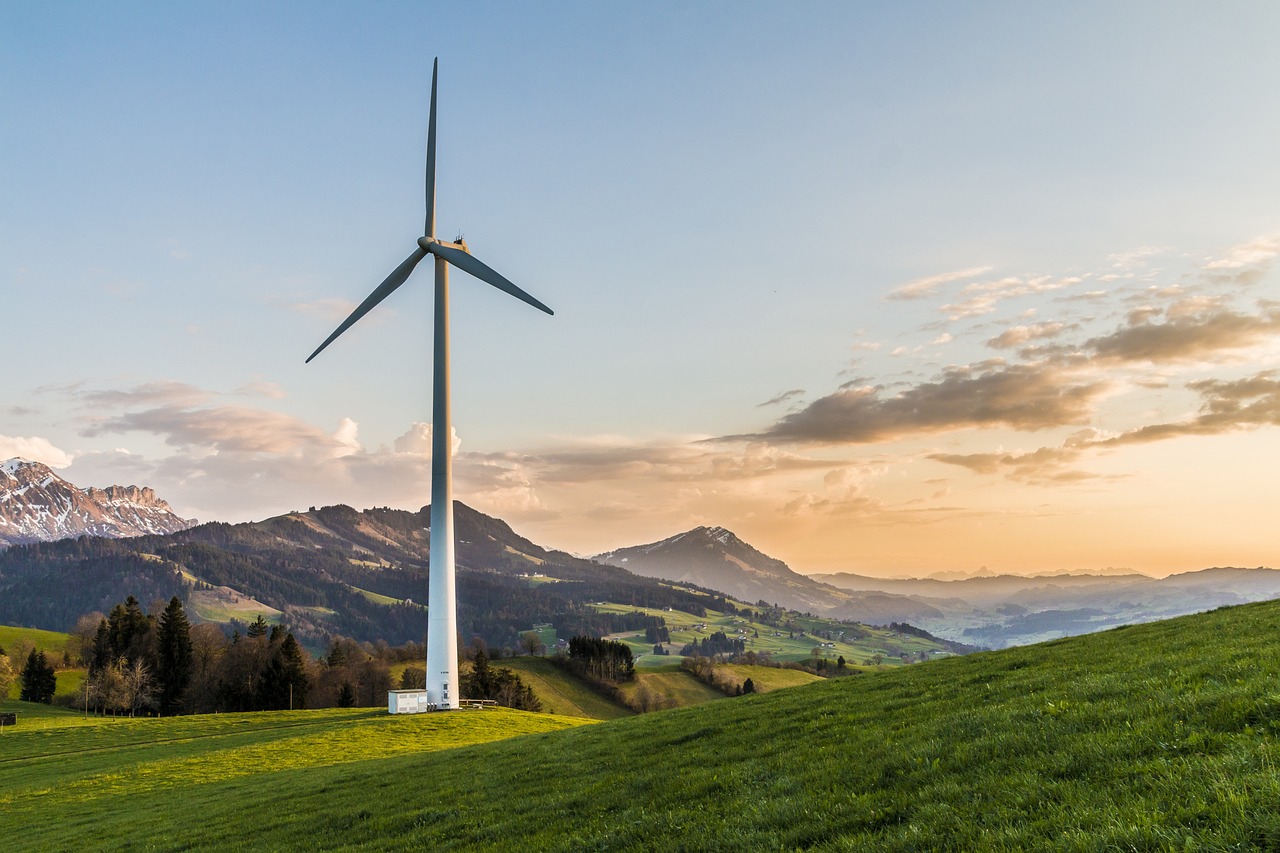
Cost Savings
This article explores the numerous advantages of energy-efficient refrigerators, including cost savings, environmental impact, and advanced features that enhance user experience while promoting sustainability in households.
When it comes to household expenses, the cost of energy can take a significant bite out of your budget. This is where energy-efficient refrigerators come into play, acting like a superhero for your wallet. Imagine slashing your electricity bills while enjoying the same level of comfort and convenience in your kitchen. Sounds too good to be true? Well, it's not! These modern appliances are designed to use less energy, which translates to substantial savings over time.
To put it into perspective, consider the following: an average household refrigerator can consume anywhere from 100 to 800 kWh per year, depending on its age and model. Energy-efficient models, however, can reduce this consumption by up to 50%. This means that if you switch to an energy-efficient refrigerator, you could save anywhere from $100 to $300 annually on your electricity bills. Over the lifespan of the refrigerator, which can be around 10-15 years, those savings can really add up!
Let’s break it down with a quick comparison:
| Type of Refrigerator | Annual Energy Consumption (kWh) | Estimated Annual Cost |
|---|---|---|
| Standard Refrigerator | 600 | $120 |
| Energy-efficient Refrigerator | 300 | $60 |
As you can see from the table above, switching to an energy-efficient refrigerator not only cuts down on energy usage but also significantly lowers your annual energy costs. Plus, many energy-efficient models come equipped with features that help you manage energy consumption even more effectively, such as LED lighting and smart temperature controls.
But wait, there’s more! Beyond just the immediate savings on electricity bills, energy-efficient refrigerators can also increase the resale value of your home. Potential buyers are often drawn to homes that feature energy-efficient appliances, as they are seen as a smart investment. This means that when it comes time to sell your home, you could command a higher price simply because you made the choice to go green.
Additionally, many utility companies offer rebates and incentives for homeowners who invest in energy-efficient appliances. These incentives can further offset the initial cost of purchasing a new refrigerator, making the switch even more appealing. So, not only do you save money on your bills, but you can also benefit from cash back programs that reward you for your eco-friendly choices.
In summary, the cost savings of energy-efficient refrigerators are not just a short-term benefit; they are a long-term investment in both your financial future and the health of our planet. By choosing an energy-efficient model, you are making a choice that pays off in more ways than one.
Using energy-efficient refrigerators contributes to lower carbon footprints. This section discusses how these appliances help reduce greenhouse gas emissions and promote a healthier planet.
Energy-efficient refrigerators consume less power, which not only saves money but also conserves natural resources. This subheading examines the technology behind lower energy consumption.
Refrigerators with Energy Star certification meet strict energy efficiency guidelines. This part highlights the importance of this certification in choosing an eco-friendly appliance.
Investing in energy-efficient models offers long-term savings and benefits. This section explores the financial and environmental advantages over the lifespan of the appliance.
Modern energy-efficient refrigerators come with innovative features that enhance convenience and usability. This subheading outlines some of the latest technologies available in these appliances.
Energy-efficient refrigerators often include advanced cooling technologies that better preserve food. This section discusses how these features contribute to longer-lasting freshness and reduced food waste.
Precise temperature control mechanisms in energy-efficient models help maintain optimal conditions for food storage. This part explains the benefits of such technology for food safety.
Humidity control features in these refrigerators help keep fruits and vegetables fresh longer. This subheading discusses how managing humidity can prevent spoilage and waste.
- What is an energy-efficient refrigerator? An energy-efficient refrigerator is designed to use less electricity compared to standard models, often featuring advanced technologies that help reduce energy consumption.
- How much can I save on my energy bills? Depending on the model, you can save anywhere from $100 to $300 annually on electricity bills by switching to an energy-efficient refrigerator.
- Are there any rebates available for buying energy-efficient appliances? Yes, many utility companies offer rebates and incentives for homeowners who purchase energy-efficient appliances.
- What is Energy Star certification? Energy Star certification indicates that an appliance meets strict energy efficiency guidelines set by the U.S. Environmental Protection Agency.

Environmental Impact
When we think about our daily lives, it's easy to overlook the impact of our choices on the environment. However, using an energy-efficient refrigerator is one of those choices that can make a significant difference. These appliances not only help us save on electricity bills but also play a crucial role in reducing our overall carbon footprint. Imagine if every household made the switch to energy-efficient models; the collective impact could be monumental!
Energy-efficient refrigerators are designed to consume less power than their conventional counterparts. By utilizing advanced technologies, these appliances significantly lower energy consumption, which translates to a decrease in greenhouse gas emissions. In fact, it's estimated that if every refrigerator sold in the U.S. were energy-efficient, we could prevent the emission of over 15 million metric tons of carbon dioxide annually. That's equivalent to the emissions from more than 3 million cars on the road!
Beyond just saving electricity, the use of energy-efficient appliances helps conserve precious natural resources. The technology behind these refrigerators often includes better insulation, more efficient compressors, and smart temperature controls, all of which contribute to their lower energy needs. This means that less energy is required from power plants, which often rely on fossil fuels, leading to reduced environmental degradation.
So, how do these appliances achieve such impressive energy savings? The secret lies in their innovative designs and features. For instance, many energy-efficient refrigerators come equipped with variable-speed compressors that adjust their operation based on the cooling demand. This means they only use the energy necessary to maintain the desired temperature, rather than running at full power all the time. Additionally, improved insulation materials help keep the cold air inside, further reducing the energy required to maintain optimal conditions.
One way to ensure you're choosing an eco-friendly option is to look for the Energy Star certification. This label signifies that the refrigerator meets strict energy efficiency guidelines set by the U.S. Environmental Protection Agency (EPA). Energy Star certified models are typically at least 9% more efficient than the minimum federal efficiency standards. By choosing a certified model, you're not just making a smart financial decision; you're also contributing to a healthier planet.
Investing in an energy-efficient refrigerator is not just a short-term win; it offers long-term benefits that can last for years. While the initial purchase price may be slightly higher, the savings on energy bills can quickly add up. Over the lifespan of the appliance, homeowners can expect to save hundreds of dollars on electricity costs. Plus, by reducing energy consumption, you're also playing a part in the larger fight against climate change, making this choice a win-win situation.
In conclusion, the environmental impact of energy-efficient refrigerators is profound. By opting for these appliances, we can collectively work towards a more sustainable future. Each small change we make in our homes can lead to significant benefits for our planet. So, the next time you're in the market for a new fridge, remember that your choice can help protect the environment for generations to come!

Reduced Energy Consumption
When it comes to household appliances, one of the most significant advantages of energy-efficient refrigerators is their . These modern marvels are designed with cutting-edge technology that allows them to operate using far less electricity compared to their older counterparts. Imagine having a fridge that not only keeps your food fresh but also saves you money on your electricity bill—sounds like a win-win, right?
The secret behind these energy-efficient models lies in their advanced components and smart features. For instance, many of these refrigerators utilize variable speed compressors that adjust their operation based on the cooling needs of the contents inside. This means that instead of running at full power all the time, they can ramp up or down as necessary, leading to significant energy savings. In fact, studies have shown that energy-efficient refrigerators can consume up to 50% less energy than older models. That’s a staggering reduction!
Furthermore, the insulation in these fridges has improved dramatically over the years. With better insulation, less cold air escapes, which means the refrigerator doesn't have to work as hard to maintain the desired temperature. This not only conserves energy but also enhances the overall performance of the appliance. To put it into perspective, consider this: a well-insulated energy-efficient refrigerator can save you more than $200 in energy costs over its lifetime!
Additionally, many energy-efficient refrigerators come equipped with features like LED lighting and smart temperature controls, both of which contribute to lower energy use. LED lights consume significantly less energy than traditional bulbs and produce less heat, which means your fridge doesn’t have to work overtime to cool down the interior. Smart controls allow you to monitor and adjust settings remotely, ensuring that your appliance is always operating at peak efficiency. It's like having a personal energy manager right in your kitchen!
In summary, the of energy-efficient refrigerators not only leads to lower electricity bills but also plays a vital role in conserving our planet's precious resources. By choosing one of these eco-friendly appliances, you are making a choice that benefits both your wallet and the environment. So, why not take the plunge and invest in an energy-efficient refrigerator today? Your future self—and the planet—will thank you!
- What is an energy-efficient refrigerator? - An energy-efficient refrigerator is designed to use less electricity while providing the same cooling performance as standard models.
- How do I know if my refrigerator is energy-efficient? - Look for the Energy Star label, which indicates that the appliance meets strict energy efficiency guidelines.
- Will an energy-efficient refrigerator really save me money? - Yes! These refrigerators can significantly reduce your electricity bills, often saving you hundreds of dollars over their lifespan.
- How does reduced energy consumption benefit the environment? - By using less electricity, energy-efficient refrigerators help lower greenhouse gas emissions and conserve natural resources.
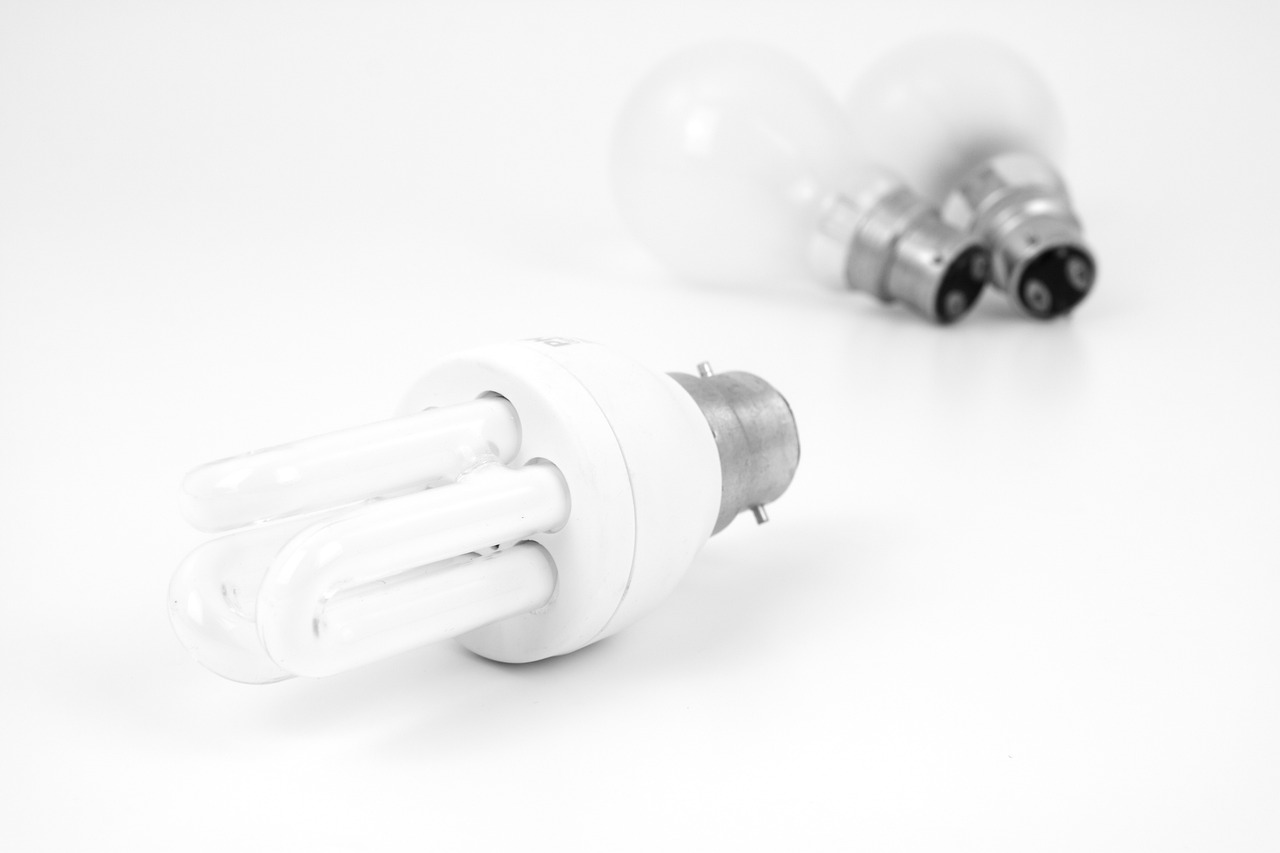
Energy Star Certification
The is a crucial element to consider when selecting an energy-efficient refrigerator. This certification is not just a label; it's a promise of efficiency and sustainability. To earn the Energy Star label, appliances must meet rigorous energy efficiency guidelines set by the U.S. Environmental Protection Agency (EPA). This means that when you see that little blue sticker, you can trust that the refrigerator has been tested and proven to consume significantly less energy than standard models.
But why is this certification so important? First and foremost, it helps consumers make informed choices. With so many options available in the market, it can be overwhelming to determine which appliances are genuinely energy-efficient. The Energy Star label simplifies this decision-making process, allowing you to focus on models that are designed to save energy and money. Additionally, Energy Star certified refrigerators are often equipped with advanced technologies that enhance their performance and durability.
Moreover, choosing an Energy Star certified refrigerator is not just beneficial for your wallet; it's also a significant step toward reducing your environmental impact. By opting for appliances that adhere to these strict guidelines, you contribute to a decrease in greenhouse gas emissions. In fact, Energy Star certified appliances are estimated to prevent the release of millions of metric tons of carbon dioxide into the atmosphere each year. This is equivalent to taking millions of cars off the road!
To illustrate the importance of Energy Star certification, consider the following table that compares the energy consumption of standard refrigerators versus Energy Star certified models:
| Type of Refrigerator | Annual Energy Consumption (kWh) | Estimated Annual Cost |
|---|---|---|
| Standard Refrigerator | 600-800 | $72 - $96 |
| Energy Star Certified Refrigerator | 300-400 | $36 - $48 |
As shown in the table, Energy Star certified refrigerators consume significantly less energy, leading to lower annual costs. This translates to substantial savings over the lifespan of the appliance. For instance, if you choose an Energy Star model, you could save anywhere from $24 to $48 each year on your electricity bill. Over a decade, that's a potential savings of up to $480!
In conclusion, the Energy Star certification is not just a marketing gimmick; it represents a commitment to energy efficiency and environmental stewardship. By choosing an Energy Star certified refrigerator, you're making a smart investment that pays off in both financial savings and a healthier planet. So, next time you're in the market for a new refrigerator, keep an eye out for that Energy Star label—it's a small detail that can lead to significant benefits.
- What does Energy Star certification mean? Energy Star certification indicates that a product meets strict energy efficiency guidelines set by the EPA, helping consumers save on energy costs and reduce environmental impact.
- How can I find Energy Star certified refrigerators? You can find Energy Star certified refrigerators by looking for the Energy Star label on the appliance or by searching for certified products on the Energy Star website.
- Are Energy Star appliances more expensive? While the upfront cost of Energy Star appliances may be higher, the long-term savings on energy bills often outweigh the initial expense.

Long-Term Benefits
Investing in an energy-efficient refrigerator is more than just a smart choice for your kitchen; it's a decision that pays off in the long run. When you think about it, isn’t it fantastic to have an appliance that not only saves you money but also contributes positively to the environment? Over time, the savings on your electricity bills can be substantial, allowing you to allocate your hard-earned cash to other important areas of your life. For instance, consider the average savings of an energy-efficient model compared to a standard one:
| Appliance Type | Average Annual Energy Cost | Estimated Savings Over 10 Years |
|---|---|---|
| Standard Refrigerator | $150 | $1,500 |
| Energy-Efficient Refrigerator | $80 | $800 |
As seen in the table above, switching to an energy-efficient refrigerator can save you a whopping $700 over a decade! This is money that can be used for family outings, vacations, or even that new gadget you've been eyeing. But the benefits don’t stop there. These refrigerators are designed to last longer than their less efficient counterparts, which means you also save on replacement costs. Imagine not having to worry about buying a new fridge every few years; that’s peace of mind!
Moreover, energy-efficient refrigerators often come equipped with advanced features that enhance their longevity and reliability. For example, they may have better insulation and more durable materials that ensure they withstand the test of time. This durability translates to fewer repairs and maintenance costs, which can pile up quickly with older, less efficient models.
Let’s not forget the environmental aspect. By choosing an energy-efficient refrigerator, you are actively contributing to a healthier planet. These appliances use less energy, which means fewer fossil fuels are burned to power them. Over time, this leads to a significant reduction in greenhouse gas emissions. It's like planting a tree every time you open your fridge; how cool is that?
In summary, the long-term benefits of investing in an energy-efficient refrigerator are undeniable. You save money, enjoy a longer-lasting appliance, and contribute positively to the environment. It’s a win-win situation that every homeowner should consider. So, next time you're in the market for a new fridge, remember that the initial investment in energy efficiency will pay dividends for years to come!
- How much can I save by switching to an energy-efficient refrigerator?
The average savings can range from $700 to $1,000 over a ten-year period, depending on your current model and energy rates. - What features should I look for in an energy-efficient refrigerator?
Look for features like Energy Star certification, advanced temperature and humidity controls, and durable construction materials. - Do energy-efficient refrigerators cost more upfront?
Yes, they may have a higher initial cost, but the long-term savings on energy bills and maintenance make them a smart investment.

Advanced Features
This article explores the numerous advantages of energy-efficient refrigerators, including cost savings, environmental impact, and advanced features that enhance user experience while promoting sustainability in households.
Energy-efficient refrigerators significantly reduce electricity bills, allowing homeowners to save money over time. This section delves into how these appliances can lead to substantial financial benefits.
Using energy-efficient refrigerators contributes to lower carbon footprints. This section discusses how these appliances help reduce greenhouse gas emissions and promote a healthier planet.
Energy-efficient refrigerators consume less power, which not only saves money but also conserves natural resources. This subheading examines the technology behind lower energy consumption.
Refrigerators with Energy Star certification meet strict energy efficiency guidelines. This part highlights the importance of this certification in choosing an eco-friendly appliance.
Investing in energy-efficient models offers long-term savings and benefits. This section explores the financial and environmental advantages over the lifespan of the appliance.
Modern energy-efficient refrigerators are not just about saving energy; they also come equipped with a plethora of that enhance convenience and usability. Imagine having a refrigerator that not only keeps your food fresh but also makes your life easier with smart technology. These innovations are designed to cater to the needs of today's busy households, ensuring that you get the most out of your appliance. For instance, many models now include built-in Wi-Fi connectivity, allowing you to monitor and control settings from your smartphone. Can you picture being at the grocery store and checking the contents of your fridge to avoid buying duplicates? That's the kind of convenience energy-efficient refrigerators offer!
Moreover, these refrigerators often feature touch screens that provide easy access to settings and can even display recipes or grocery lists. With the integration of smart technology, you can receive alerts when the door is left open or when it’s time to change the water filter. This not only enhances user experience but also contributes to the longevity of the appliance.
Another exciting advancement is the dual cooling system, which uses separate systems for the refrigerator and freezer compartments. This technology helps maintain optimal humidity levels and prevents odors from mixing, ensuring that your food remains fresh for longer periods. Additionally, some models come with adjustable shelving and customizable compartments, allowing you to maximize space according to your needs. The flexibility these features offer can be a game-changer in organizing your kitchen.
In summary, the advanced features in modern energy-efficient refrigerators not only promote energy savings but also enhance everyday convenience. They are like having a personal assistant in your kitchen, working tirelessly to keep your food fresh while making your life easier.
Energy-efficient refrigerators often include advanced cooling technologies that better preserve food. This section discusses how these features contribute to longer-lasting freshness and reduced food waste.
Precise temperature control mechanisms in energy-efficient models help maintain optimal conditions for food storage. This part explains the benefits of such technology for food safety.
Humidity control features in these refrigerators help keep fruits and vegetables fresh longer. This subheading discusses how managing humidity can prevent spoilage and waste.
Q: What makes a refrigerator energy-efficient?
A: Energy-efficient refrigerators typically use advanced insulation, efficient compressors, and technology that reduces energy consumption while maintaining performance.
Q: How much can I save on my electricity bill with an energy-efficient refrigerator?
A: On average, switching to an energy-efficient model can save you anywhere from $100 to $200 annually, depending on usage and local electricity rates.
Q: Do energy-efficient refrigerators cost more than traditional ones?
A: While the upfront cost may be higher, the long-term savings on energy bills and the benefits of advanced features often outweigh the initial investment.
Q: How do I know if a refrigerator is energy-efficient?
A: Look for the Energy Star label, which indicates that the appliance meets strict energy efficiency guidelines set by the EPA.

Improved Food Preservation
When it comes to keeping our food fresh and delicious, energy-efficient refrigerators are like the superheroes of the kitchen. They not only save energy but also come equipped with cutting-edge technologies that ensure your groceries stay in top-notch condition. Imagine biting into a crisp apple or a juicy tomato that tastes as if it was just picked from the garden. This is the magic of advanced cooling technologies found in modern energy-efficient models.
One of the standout features is the precise temperature control mechanisms. These refrigerators are designed to maintain optimal temperatures for various food items, ensuring that everything from dairy products to meats is stored under the best conditions. This precision helps to minimize spoilage, which means less waste and more savings for you. Have you ever opened your fridge only to find that your milk has gone sour a day earlier than expected? With an energy-efficient model, those days are behind you.
Furthermore, many of these refrigerators are equipped with humidity control features that play a crucial role in food preservation. By managing the moisture levels within the fridge, they help keep fruits and vegetables fresh for longer periods. For instance, leafy greens thrive in a slightly humid environment, while apples and pears prefer lower humidity. This tailored approach means you can say goodbye to wilting veggies and hello to vibrant, crunchy salads!
To visualize the difference, consider the following table that compares the lifespan of fruits and vegetables in standard versus energy-efficient refrigerators:
| Food Item | Standard Refrigerator (Days) | Energy-Efficient Refrigerator (Days) |
|---|---|---|
| Leafy Greens | 3-5 | 7-10 |
| Tomatoes | 5-7 | 10-14 |
| Apples | 7-10 | 14-21 |
| Carrots | 5-7 | 10-14 |
As you can see, the difference is remarkable! Not only do energy-efficient refrigerators extend the life of your food, but they also help you save money by reducing the need for frequent grocery trips. By investing in one of these appliances, you're not just making a smart financial decision; you're also contributing to a more sustainable lifestyle.
In conclusion, improved food preservation is one of the many benefits of using energy-efficient refrigerators. With advanced technologies that enhance temperature and humidity control, these appliances ensure that your food remains fresh and tasty for longer periods. So, the next time you're in the market for a new fridge, consider how these features can transform your kitchen experience and help you waste less food!
- How do energy-efficient refrigerators save money?
They consume less electricity compared to standard models, leading to lower utility bills over time.
- What is the average lifespan of an energy-efficient refrigerator?
Typically, they last about 10 to 20 years, depending on usage and maintenance.
- Are energy-efficient refrigerators more expensive?
While the initial cost may be higher, the long-term savings on energy bills often outweigh the upfront investment.
- Do they really make a difference in food preservation?
Yes! With advanced temperature and humidity controls, they significantly extend the freshness of your food.
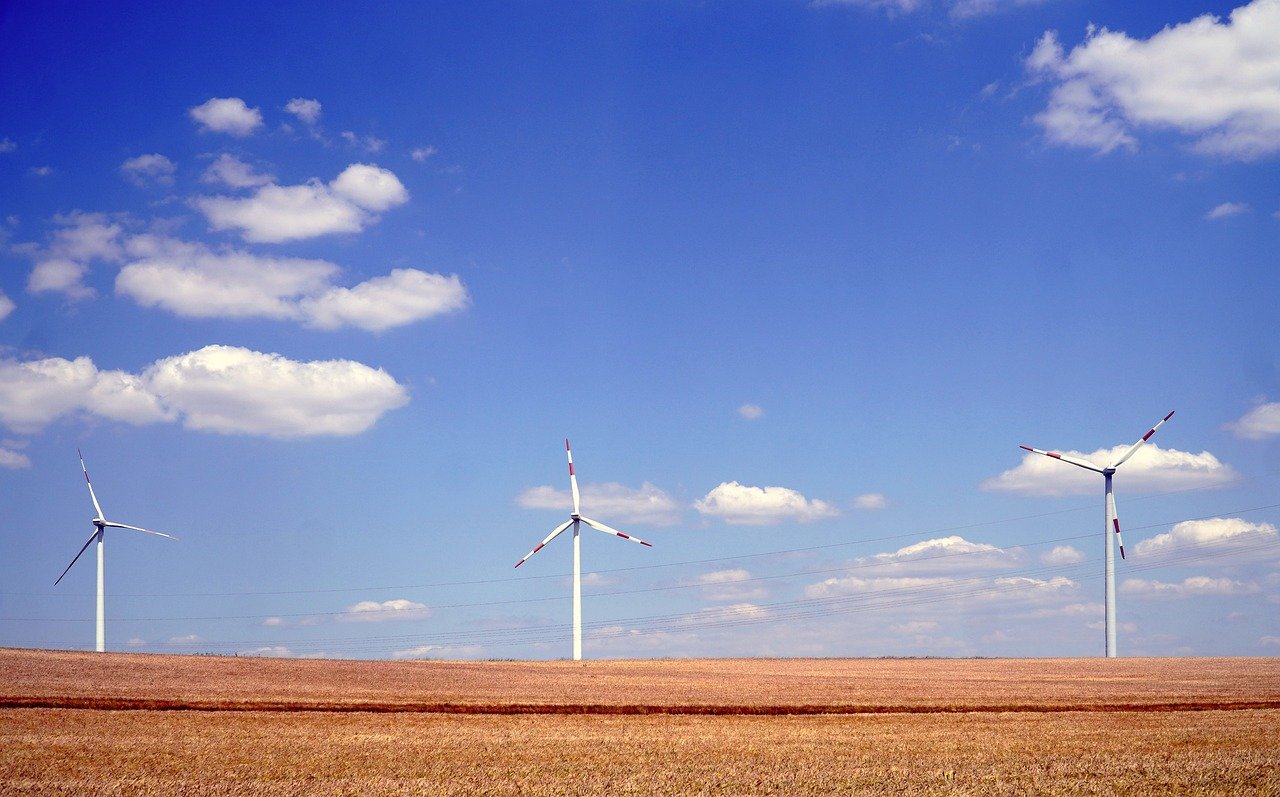
Temperature Control
When it comes to keeping your food fresh and safe, is absolutely crucial. Energy-efficient refrigerators are equipped with advanced technology that allows for precise temperature management, ensuring that every corner of the fridge is at the optimal temperature for food preservation. Imagine being able to set your refrigerator to the exact degree that your favorite fruits and vegetables thrive in—no more wilting lettuce or spoiled berries! This level of control not only helps maintain the integrity of your food but also reduces waste, which is a win-win for both your wallet and the environment.
Many modern refrigerators feature smart temperature control systems that automatically adjust the cooling based on the contents and external conditions. For instance, if you frequently open the fridge to grab snacks, the system can detect this and temporarily lower the temperature to compensate for the warm air entering. This technology works behind the scenes to ensure that your food stays at its best, even when life gets a little hectic.
Furthermore, the ability to monitor and adjust the temperature remotely via smartphone apps adds an extra layer of convenience. Imagine being at the grocery store and realizing you forgot to check the fridge's temperature. With just a few taps on your phone, you can make adjustments on the fly, ensuring that your groceries arrive at home to a perfectly chilled environment. This not only saves you time but also enhances your overall cooking experience.
To give you a better idea of how important temperature control is, consider the following table that highlights the ideal storage temperatures for various food items:
| Food Item | Ideal Temperature (°F) |
|---|---|
| Meat | 32°F |
| Dairy Products | 34°F |
| Vegetables | 35°F - 40°F |
| Fruits | 32°F - 35°F |
| Leftovers | 40°F |
As you can see, maintaining the right temperature is essential for various food categories. Energy-efficient refrigerators not only help you achieve these specific temperatures but also do so while consuming less energy, which is a significant advantage. So, if you’re still using an outdated model, it might be time to consider an upgrade. Not only will you enjoy better food preservation, but you'll also be contributing to a greener planet.
- What is the average lifespan of an energy-efficient refrigerator?
Typically, an energy-efficient refrigerator can last between 10 to 20 years, depending on usage and maintenance. - How much can I save on my energy bills with an energy-efficient refrigerator?
On average, homeowners can save anywhere from $100 to $300 per year on energy bills by switching to an energy-efficient model. - Are energy-efficient refrigerators more expensive upfront?
While they may have a higher initial cost, the long-term savings on energy bills often outweigh the upfront investment. - How do I know if a refrigerator is energy-efficient?
Look for the Energy Star label, which indicates that the appliance meets strict energy efficiency guidelines.
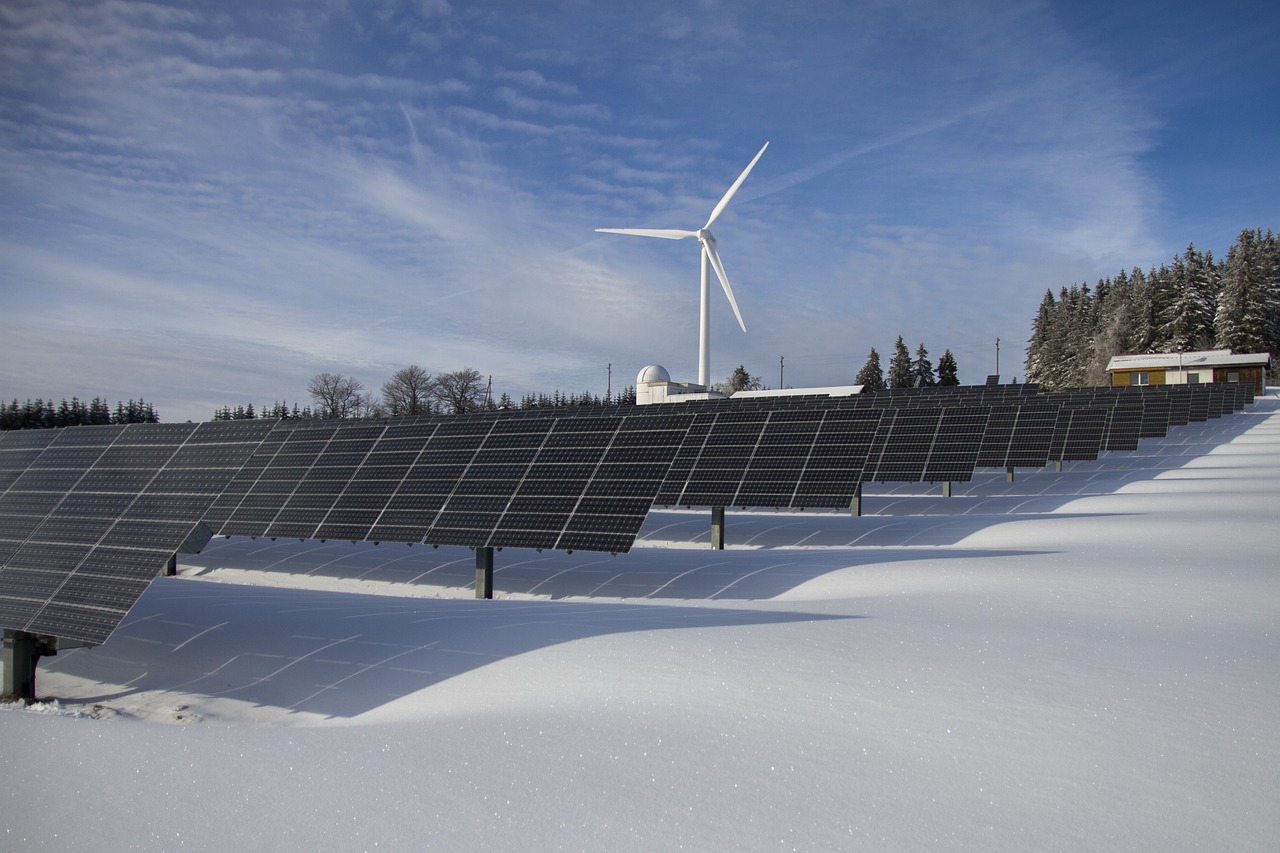
Humidity Control
When it comes to keeping your fruits and vegetables fresh, in energy-efficient refrigerators is a game changer. Imagine opening your fridge to find your leafy greens still crisp and your berries bursting with flavor, instead of wilting away or turning into mush. This is all thanks to advanced humidity management systems that many modern refrigerators now feature.
But how does it work? Well, these refrigerators come equipped with specialized compartments that can adjust the humidity levels based on what you're storing. For instance, fruits tend to thrive in a slightly higher humidity environment, while vegetables prefer a drier atmosphere. By regulating the moisture levels, these appliances help to create the ideal conditions for each type of produce, ultimately leading to less spoilage and reduced food waste.
In addition to preserving the quality of your food, effective humidity control also plays a significant role in maintaining the overall freshness of your refrigerator. High humidity can lead to condensation, which can promote the growth of mold and bacteria. By keeping humidity levels in check, you not only protect your food but also ensure a cleaner and healthier fridge environment.
Many energy-efficient refrigerators offer customizable settings, allowing you to adjust the humidity levels based on your specific needs. This flexibility means that whether you’re storing a bunch of fresh herbs or a batch of ripe avocados, you can create the perfect microclimate for each item. It’s like having a personal produce protector right in your kitchen!
Moreover, the benefits of humidity control extend beyond just food preservation. By reducing waste and extending the shelf life of your groceries, you’re not only saving money but also contributing to a more sustainable lifestyle. Less food waste means a smaller carbon footprint, which is something we can all get behind.
In summary, humidity control is a vital feature in energy-efficient refrigerators that enhances food preservation, minimizes waste, and fosters a healthier kitchen environment. So, the next time you consider upgrading your appliance, remember that these smart features do more than just cool your food—they help you live a more sustainable and economical life.
- What is humidity control in refrigerators?
Humidity control refers to the ability of a refrigerator to regulate moisture levels within its compartments, which helps in preserving the freshness of fruits and vegetables.
- Why is humidity control important?
It is important because it prevents spoilage, reduces food waste, and maintains a cleaner fridge environment by minimizing condensation and mold growth.
- Can I adjust the humidity levels in my fridge?
Many modern energy-efficient refrigerators come with customizable humidity settings, allowing you to tailor the environment to suit different types of produce.
- How does humidity control contribute to sustainability?
By extending the shelf life of food and reducing waste, humidity control helps lower the overall carbon footprint associated with food production and disposal.
Frequently Asked Questions
- What are the main benefits of using an energy-efficient refrigerator?
Energy-efficient refrigerators offer a variety of benefits, including significant cost savings on electricity bills, reduced environmental impact through lower energy consumption, and advanced features that enhance food preservation and user experience. By using less energy, these appliances not only help you save money but also contribute to a healthier planet.
- How much can I save on my electricity bills with an energy-efficient refrigerator?
The savings can vary depending on your current refrigerator's energy consumption and your usage patterns, but many homeowners report savings of anywhere from 20% to 50% on their electricity bills over time. This can add up to hundreds of dollars in savings throughout the lifespan of the appliance!
- What does Energy Star certification mean?
Energy Star certification indicates that a refrigerator meets strict energy efficiency guidelines set by the U.S. Environmental Protection Agency. This means that the appliance uses significantly less energy than standard models, making it a smart choice for eco-conscious consumers.
- Do energy-efficient refrigerators have advanced features?
Absolutely! Many modern energy-efficient refrigerators come equipped with innovative features like precise temperature control, humidity control systems, and smart technology that allows you to monitor and manage your appliance remotely. These features not only improve food preservation but also enhance convenience and usability.
- How do energy-efficient refrigerators help with food preservation?
Energy-efficient refrigerators often include advanced cooling technologies that maintain optimal temperatures and humidity levels, which are crucial for keeping your food fresh. With better temperature and humidity control, you can expect longer-lasting freshness and reduced food waste, which is a win-win!
- Are there any downsides to energy-efficient refrigerators?
While the upfront cost of energy-efficient refrigerators may be higher than traditional models, the long-term savings on energy bills and the environmental benefits often outweigh this initial investment. Additionally, the advanced features and improved performance can enhance your overall experience.
- How can I determine if a refrigerator is energy-efficient?
To determine if a refrigerator is energy-efficient, look for the Energy Star label on the appliance. You can also check the energy guide label, which provides information on the estimated annual energy consumption and costs associated with the model. Comparing these figures with other models can help you make an informed decision.

